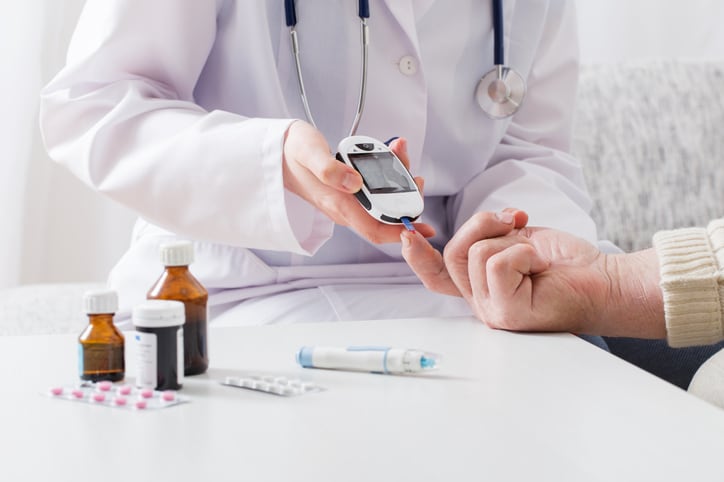A new report out found that people who eat a lot of ultra-processed foods are more likely to develop diabetes, according to a study published in JAMA Internal Medicine.
Lead author Bernard Srour, Pharm.D., M.P.H., Ph.D., from Paris 13 University and colleagues examined the correlations between ultra-processed food consumption and risk for type 2 diabetes in a population-based prospective cohort study of over 104,000 participants.
The study offers new evidence linking these foods to type 2 diabetes
"To our knowledge, although ultra-processed foods consumption was previously found to be associated with increased risks of cancer, cardiovascular diseases, mortality, depressive symptoms, and metabolic disorders, no prior prospective epidemiological study had evaluated their association with type 2 diabetes risk," wrote the authors.
“We advise people to limit their consumption of ultra-processed foods and privilege unprocessed or minimally processed foods - of course in addition to a nutritionally healthy diet low in salt, sugar, fat and energy density; an optimal BMI; and healthy lifestyle behaviors.”
Study details
To test whether there are in fact correlations between ultra-processed food consumption and type 2 diabetes, the researchers examined data on 104,707 adults without diabetes who averaged 43 years old, most of whom were female (79%). They examined 24-hour dietary records of more than 3,500 different food items at 6-month intervals across 2 years. The researchers used the data to quantify how much ultra-processed food each participate ate. Type 2 diabetes was self-reported at 3-month intervals for a median of 6 years.
Overall, about 17% of participants’ diets consisted of ultra-processed foods. People who consumed more processed food were also more likely to eat more calories overall, have lower quality diets, and more likely to be obese and inactive.
Increasing ultra-processed food consumption resulted in increased risk of developing diabetes
The report pointed out that each 10-percentage point increase in the amount of ultra-processed foods in participants’ diets was associated with a 15% higher risk of developing diabetes.
Among people in the study who ate the most ultra-processed foods, 166 in every 100,000 developed diabetes, compared with 116 out of every 100,000 people who ate the smallest amounts of these foods. Over the course of the study, 821 people were diagnosed with diabetes.
The research implies that ultra-processed food increases diabetes risk, but more studies are needed
The study concludes that the results suggest an association between ultra-processed food consumption and type 2 diabetes risk. “They need to be confirmed in large prospective cohorts in other settings, and underlying mechanisms need to be explored in ad hoc epidemiological and experimental studies. Beyond nutritional factors, non-nutritional dimensions of the diet may play a role in these associations, such as some additives, neoformed contaminants, and contact materials.”
The authors added that even if a causal link between ultra-processed food and chronic diseases cannot be established so far, the mounting evidence leads public health authorities in several countries to recommend low to no processing.
The team expects to do more research on the topic in the future.
Source: JAMA Intern Med.
December 16, 2019. doi:https://doi.org/10.1001/jamainternmed.2019.5942
“Ultraprocessed Food Consumption and Risk of Type 2 Diabetes Among Participants of the NutriNet-Santé Prospective Cohort”
Authors: B. Srour, et al.




